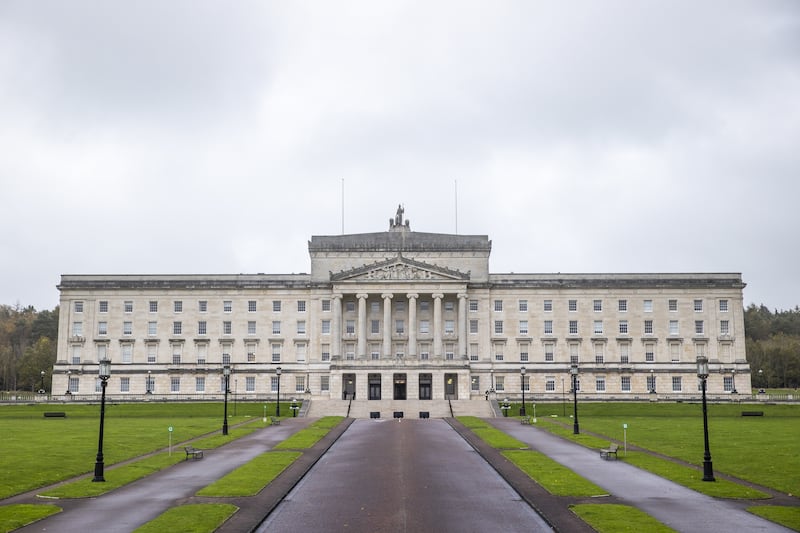“No one party should have a veto over whether the executive exists,” Micheál Martin said last Friday, after Jeffrey Donaldson warned the DUP will have “difficulty” returning to Stormont after May’s election if its protocol issues are not resolved.
Perhaps the taoiseach was expressing more than frustration. A crisis in devolution looks inevitable, so a negotiation to put it back together seems equally inevitable, to be led as usual by London and Dublin, maybe with a new and more focused British prime minister.
There are two basic ideas to remove the veto of major parties while retaining some element of power-sharing.
An executive could require a weighted majority, comprising parties holding 60 per cent of assembly seats for example, to ensure there are always unionist and nationalist ministers. This mechanism is used for key votes in the assembly, such as on petitions of concern, so the Good Friday Agreement appears to anticipate it. The agreement also required a “formal review” of mandatory coalition after three years. Instead, Stormont collapsed after three years and was rebuilt at St Andrews with even more vetoes for the largest parties.
The second idea is ‘optional-mandatory’ coalition, where the largest unionist and nationalist parties must be offered a place but do not have to take it. A spurned place could be offered to the next largest party, with an executive formed as long as it had cross-community membership.
The problem with Stormont reform is not so much coming up with an idea as getting the two largest parties to agree to it. They would have to be involved in negotiations and as St Andrews showed they will just dig in.
Sinn Féin has always resisted watering down mandatory coalition, believing this would be used to exclude it. The DUP’s current ‘difficulty’ over a republican first minister supports this suspicion.
The DUP has always advocated voluntary coalition, yet is now almost comically unlikely to accept an idea that might be used to exclude it.
Could Westminster impose reform? At St Andrews, London and Dublin warned the DUP they would operate the agreement without Stormont. Of course, it suited the DUP to say it had been forced to accept power-sharing.
After the last executive collapse in 2017, Sinn Féin portrayed the St Andrews warning as “a form of joint authority”. In reality, it would have been the same consultative role for the Irish government that has existed since the Anglo-Irish Agreement. There is no such thing as joint authority. Inventing and sustaining it would require a partnership between two governments unparalleled in history, yet London and Dublin are barely on speaking terms and even their existing partnership mechanisms have lapsed.
If reform were imposed, excluded parties would attack it from the sidelines. The UUP would be mercilessly ‘Lundied’ and the SDLP accused of ‘stooping’ for keeping out the DUP, Sinn Féin or both. Relying on the smaller party in any designation to confer cross-community legitimacy is neat in theory but needs a more settled society than ours in practice.
This week, the Loyalist Communities Council wrote an open letter demanding Doug Beattie and the UUP “start acting like unionists”. Being leader of the Ulster Unionist Party is apparently not unionist enough.
Reform is still possible, despite all these problems. We may have hit upon it almost by accident in the legislation passed at Westminster on Monday, enacting changes agreed in New Decade, New Approach.
This creates a six month period after an election to form an executive, during which caretaker ministers from the previous mandate remain in place. The DUP plainly intends to spend this period messing around.
However, the new law requires an election within three months of failure to form an executive - there is to be no more ‘indirect rule’.
The six month period can be cut to as little as six weeks if there is a cross-community vote in the assembly, or if the caretaker executive lacks cross-community membership.
The DUP cannot block a cross-community vote if it falls below 60 per cent of unionist seats in May. Or Sinn Féin and the SDLP could remove all their caretaker ministers. Either way, DUP foot-dragging would mean a cycle of elections every five to nine months until the DUP stopped dragging its feet or ceased to be the largest unionist party.
The elections of 2019 showed voters will troop to the polls in quick succession to punish those they blame for collapsing devolution.
Before writing off Stormont as broken, the latest fix deserves a chance.







